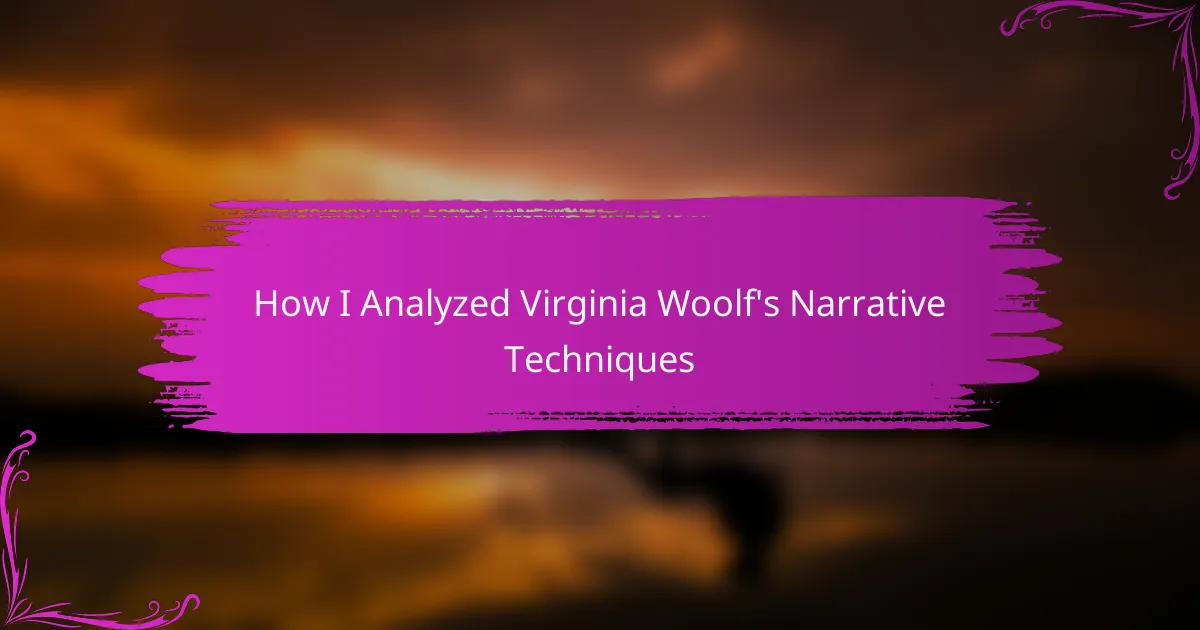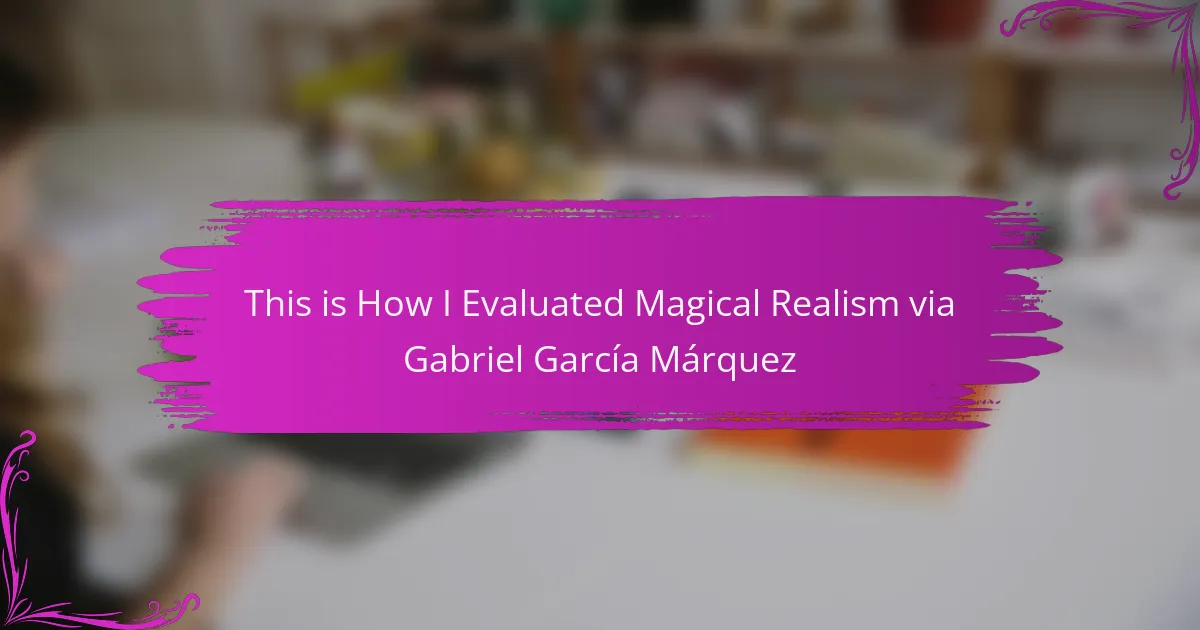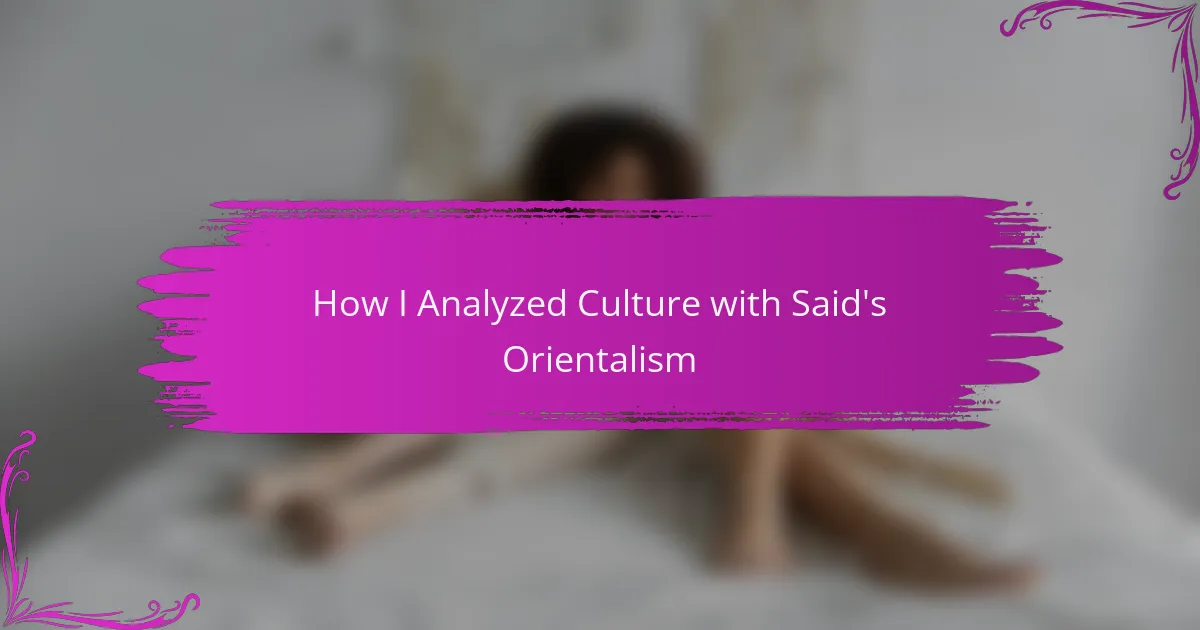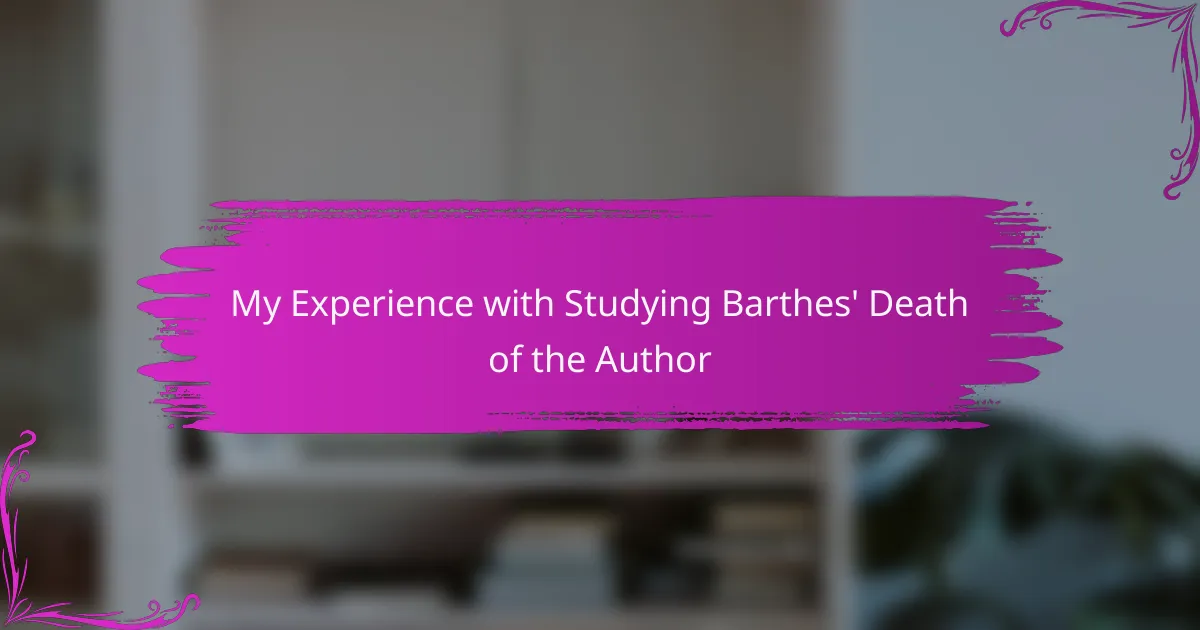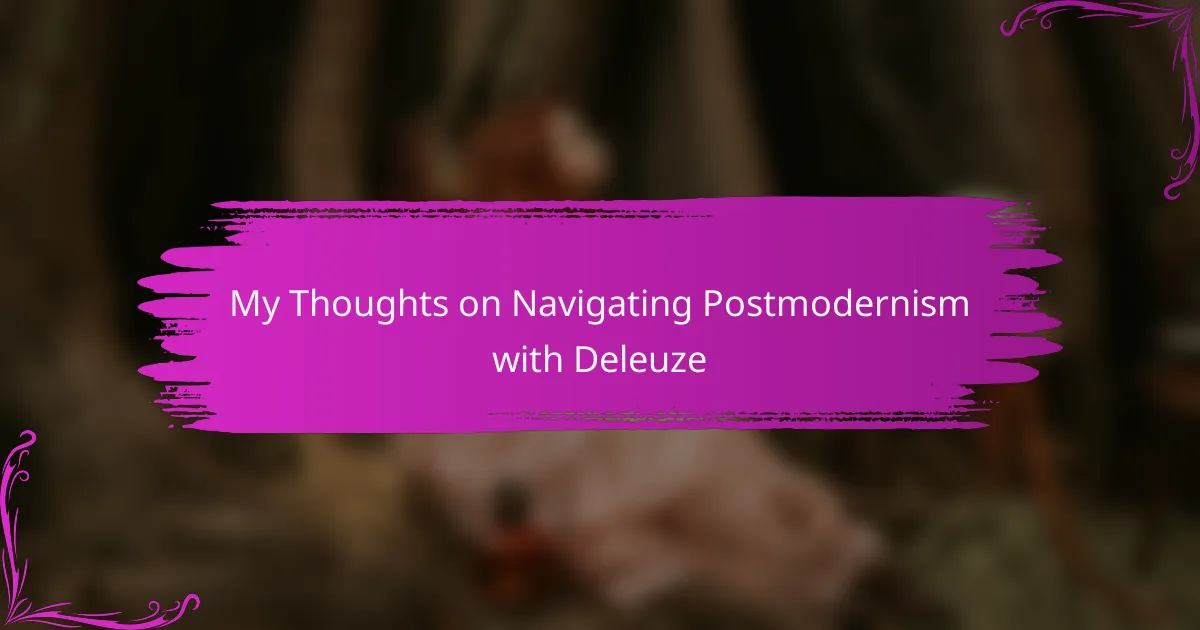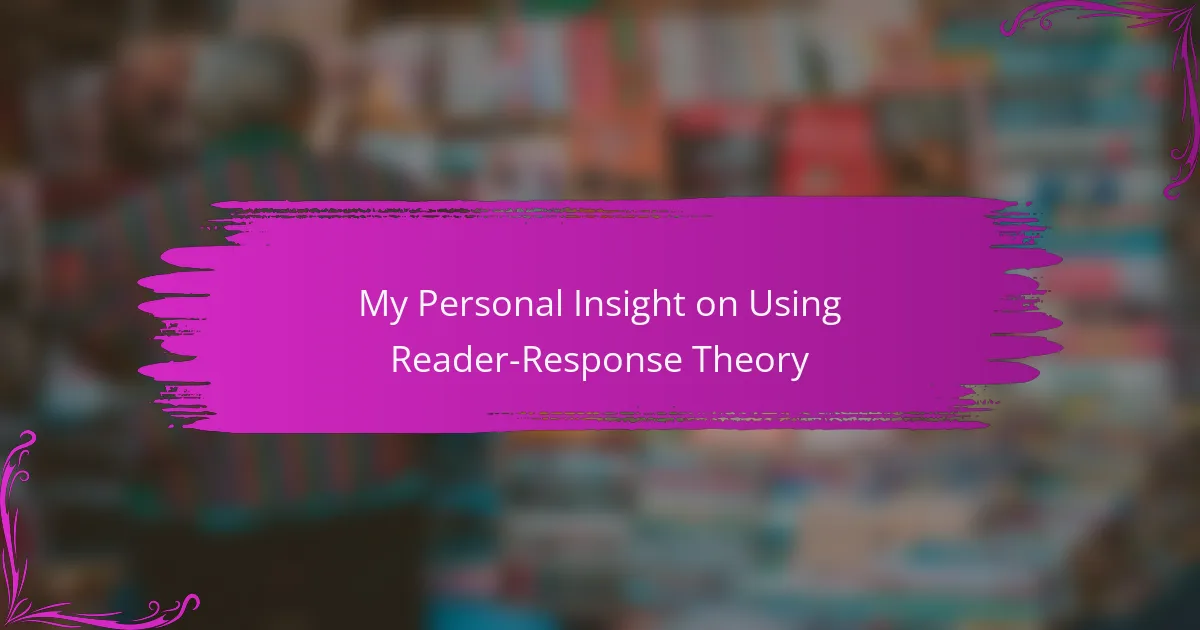Key takeaways Virginia Woolf employs innovative narrative techniques, like stream-of-consciousness and non-linear storytelling, to deepen emotional engagement and character exploration. The narrative structure and style in her works provoke readers to reflect on their own lives and perceptions, enhancing the connection between literature and personal experience. Woolf’s use of vivid imagery and symbolism amplifies themes […]
Key takeaways Magical realism blends the extraordinary with the ordinary, challenging perceptions of reality and exploring cultural identities. Key themes in Gabriel García Márquez’s works include the exploration of time, solitude, and the integration of magical elements in daily life. The genre provokes emotional responses, prompting readers to reflect on their own experiences and the […]
Key takeaways Edward Said’s “Orientalism” reveals how Western literature has historically portrayed Eastern cultures through biased and simplistic representations. Cultural analysis emphasizes the importance of understanding the power dynamics in narratives, highlighting marginalized voices and their absence in mainstream literature. In educational settings, engaging in critical thinking and comparative studies can challenge stereotypes and enhance […]
Key takeaways Barthes’ “Death of the Author” promotes the idea that a text’s meaning is shaped by the reader’s interpretation, freeing personal experiences and perspectives in literature analysis. The shift from authorial intent to a reader-centric approach enhances engagement with texts, allowing for richer and more diverse interpretations. Challenges in applying Barthes’ theory include transitioning […]
Key takeaways Postmodernism emphasizes relativism, celebrating subjective interpretations and diverse viewpoints in literature. Deleuze’s concepts of rhizome and difference highlight the interconnectedness of knowledge and the uniqueness of experiences. Postmodern literature challenges traditional narrative structures, encouraging fragmentation and intertextuality to reflect societal complexities. In education, applying Deleuzean principles fosters critical thinking and deeper engagement through […]
Key takeaways Magical realism blends the extraordinary with the ordinary, challenging perceptions of reality and exploring cultural identities. Key themes in Gabriel García Márquez’s works include the exploration of time, solitude, and the integration of magical elements in daily life. The genre provokes emotional responses, prompting readers to reflect on their own experiences and the […]
Key takeaways Reader-Response Theory emphasizes the reader’s personal experience and interpretation, fostering deeper connections with texts. This approach promotes critical thinking, encourages diverse perspectives, and enhances classroom discussions. Practical applications like discussions, journals, and creative projects help students engage emotionally and meaningfully with literature. By validating students’ voices, Reader-Response Theory transforms their relationship with reading, […]
